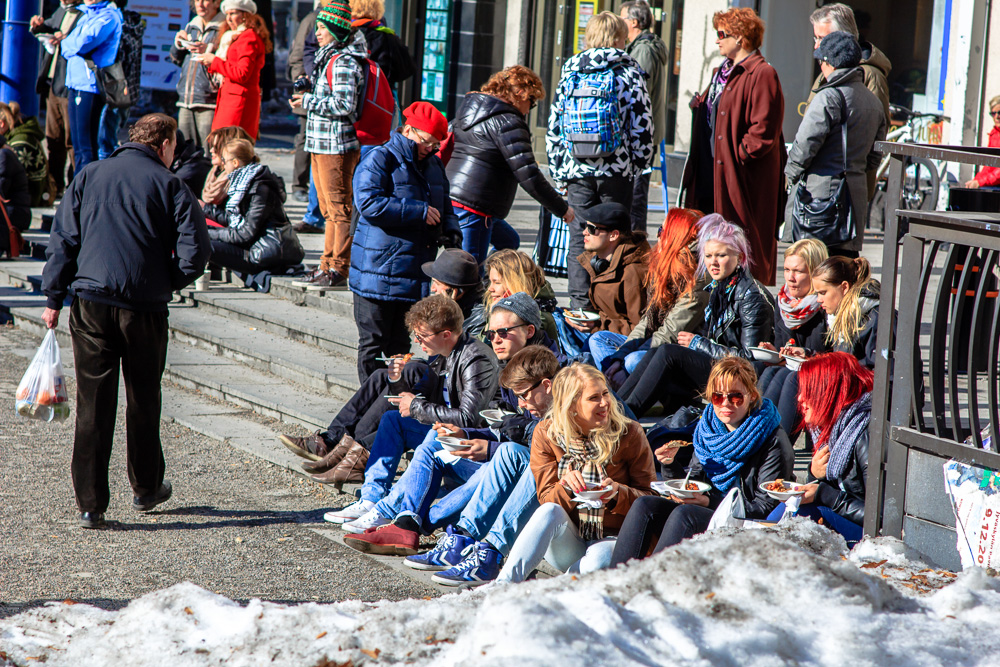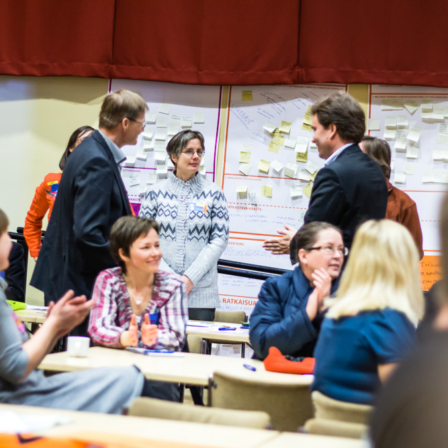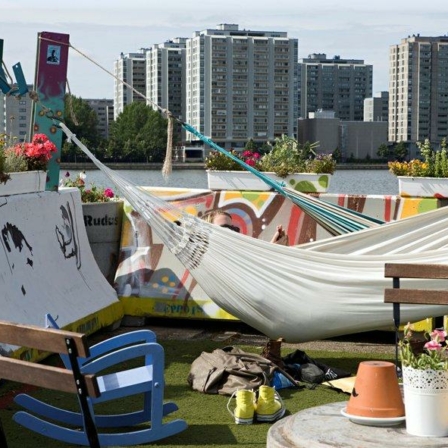This article by Timo Sillanpää is also published in Human Tech Center Finland magazine (page 18).
In partnership with the Finnish Innovation Fund Sitra, Jyväskylä and its surrounding area is developing models that will help us respond to the challenges presented by the depletion of natural resources, population growth and climate change. The objective is a resource-wise urban area in which recycling, efficient use of energy and cooperation between enterprises produce savings in raw materials and create new opportunities for business.
“What lies behind resource wisdom is a concern for the adequacy of natural resources, growth in population and climate change,” says Johanna Kirkinen, Senior Lead at Sitra. “Due to these issues we need solutions by means of which the lifestyle of urban communities can be made ecologically sustainable. These solutions include recycling and reuse, energy efficiency and cooperation between companies that leads to savings in raw materials.”
In the spring of 2013 Sitra, in partnership with the City of Jyväskylä, launched a two-year year project entitled Towards Resource Wisdom, the purpose of which is to create duplicable models that will provide the basis for an ecologically resource-wise lifestyle in urban environments. The project will focus on the city itself and the surrounding central Finnish region.
As part of the project, trials will be conducted which are based on ideas put forward by the inhabitants of greater Jyväskylä. Dozens of suggestions were made at an open brainstorming event held in the spring of 2013. For instance, numerous ideas were voiced regarding the use of food products classified by stores and supermarkets as waste. In addition, people came up with ideas for collecting rain water for irrigation purposes, recycling plastic goods and computers, establishing a market for local fish and ways of making the journey to and from work more ecological.
“The best ideas will be selected for closer examination and polishing, during which time their effects in practice will be tested. After these trials the most promising will be refined further, which presents an opportunity for new business,” explains the City of Jyväskylä’s Director of Development Timo Rusanen.
One person’s mountain of waste is another’s goldmine
The Towards Resource Wisdom project has won the commitment of a large group of enterprises and public sector organisations. “We intend to create industrial symbioses, which means cooperation between companies to make the use of resources more efficient. In industrial symbioses companies make use of each other’s unused capacity, waste products or raw material side-streams. To put it in simple terms, one person’s pile of waste is somebody else’s raw material,” says Rusanen.
One good example of industrial symbiosis is Britain’s National Industrial Symbiosis Programme (NISP). With the aid of NISP’s industrial symbioses companies have succeeded in optimising the raw material cycle and achieved millions of pounds worth of savings. Companies are keen to get involved in symbioses if they benefit from them financially.
Timo Rusanen believes that Towards Resource Wisdom will generate new business activity. In particular there is vast potential associated with the bio-economy.
“Central Finland as a region is strong in terms of biotechnology expertise and raw materials. We stand an excellent chance of shifting to a bio-economy. In local transport, for instance, we could make far greater use of biofuels than at present.”
Smart City Kangas
Development of the Kangas area, located just a stone’s throw from the centre of the city, will be the most important urban planning project in Jyväskylä over the next couple of decades. The area previously occupied by a paper mill will be turned into a city suburb of 3000 inhabitants and 1500 jobs, offering both services and recreational facilities. The aim is to make Kangas a model example of sustainable development, a factor which will be taken into account from the outset when construction gets under way.
According to Timo Rusanen the aim is to create a carbon-neutral area, which at best could also produce clean energy for the use of others: “The basis for the development of the Kangas area reflects numerous themes related to resource wisdom, such as a reduction in dependence on motor vehicles and the construction of new-style infrastructure that permits sustainable development.”
Further information:




Recommended